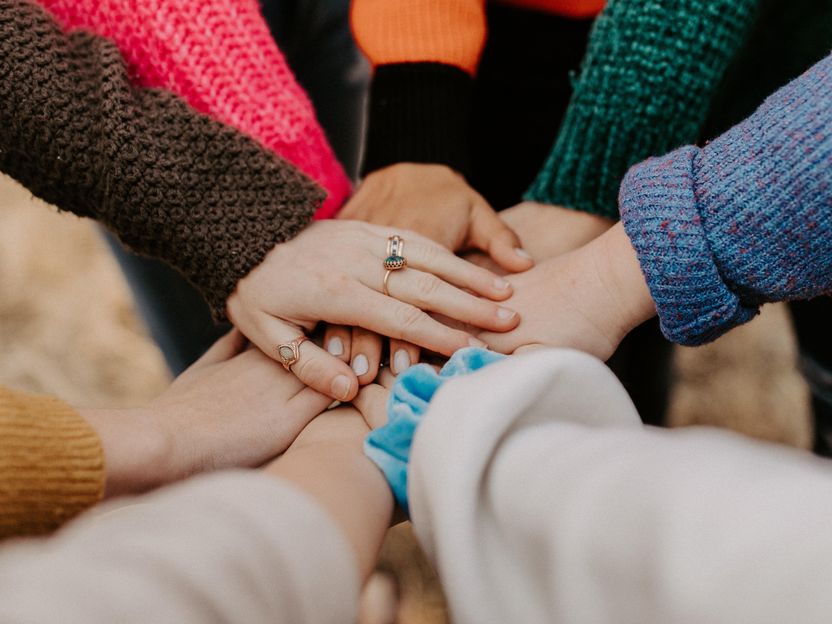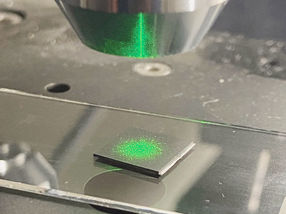Public Value Carries Startups Through the Crisis
"Those who solve relevant problems will prevail"
Every year, HHL Leipzig Graduate School of Management and the auditing firm Ernst & Young (EY) hand out awards to young companies offering solutions for societal challenges through their products and services and creating public value.

Symbolic image
Photo by Hannah Busing on Unsplash
Some of the startups which received one of the coveted the Public Value Awards for Startups over the last few years recently joined a virtual round table to talk about how they are experiencing the effects of the coronavirus crisis. It became apparent that the common good is becoming an indicator for what is economically viable while generating value in a sustainable way.
"Companies with public value orientation as part of their core business will survive the coronavirus crisis better than others," says Prof. Dr. Timo Meynhardt of HHL Leipzig Graduate School of Management. He has observed that anchoring public value orientation in the startups' business models is the key to success.
"Those who solve relevant problems will prevail. All others are much more dependent on good fortune and circumstances. The scene is undergoing a healthy cleaning process."
Prof. Dr. Timo Meynhardt, HHL
Startups for the common good
Every year, HHL Leipzig Graduate School of Management and the auditing firm Ernst & Young (EY) hand out awards to young companies offering solutions for societal challenges through their products and services and creating public value.
Some of the startups which received one of the coveted the Public Value Awards for Startups over the last few years recently joined a virtual round table to talk about how they are experiencing the effects of the coronavirus crisis. It became apparent that the task which the founders of the startups set for themselves — generating added value for society — is currently much more at the forefront. These kinds of companies are needed now more than ever. The common good is becoming an indicator for what is economically viable while generating value in a sustainable way.
The startups oriented towards the common good in times of the coronavirus
Selfapy, a provider of online therapy, has reported a strong increase in demand. The company offers immediate assistance with psychological stress as an online program. Many health insurance companies cover the costs. Before the coronavirus outbreak, the startup was created to offer therapy to patients to bridge waiting periods. There is no direct contact between the therapist and the patient in this 12-week program which combines psychological support via telephone with psycho-educational units. What some patients were missing in online therapy has now become an advantage. The client is offered the experience without the danger of contracting COVID-19.
The Hamburg-based company besser zuhause ("better at home") offers a full range of services to people who wish to convert their apartments to make them suitable for seniors. As the concerns about infection in retirement and nursing homes is increasing, the possibility of creating a barrier-free living environment offers society even more added value than before the coronavirus outbreak.
Startups MOIO (smart care assistant) and Coldplasmatech (innovative wound healing) report that negotiations with potential investors are currently running unusually successfully as both companies deal with human and social needs in an innovative way. MOIO developed an AI-based plaster which records motion sequences and location data of people in need of care and notifies the caregiver when assistance is required. The product will soon be available on the market. Coldplasmatech developed a square wound dressing made of cold plasma which helps prevent the occurrence of chronic wounds. In addition to good manageability even for larger wounds, the product has an inactivating effect on germs which may inhibit the healing process — a quality which is very important to hospitals. Says Dr. Carsten Mahrenholz, founder of Coldplasmatech, "In a crisis, the right entrepreneurial mindset does not become wrong. It just has to be implemented under different circumstances."
Verónica Celis Vergara, CEO of EnlightAid (transparency through donations) describes fundamental social orientation as a key success factor, "public value by design" so to speak. The founder realized that about 30 percent of all donations are lost through corruption, which demotivates the donors. She developed an app which can trace every transfer of a donation — up to the entire respective aid project.
Markus Schweizer, partner at EY und co-chair of the judging panel, sees the orientation towards the common good as a possibility "to strengthen your own resilience and to improve your hand by anchoring your business in the social ecosystem."
Other news from the department business & finance
Most read news
More news from our other portals
Something is happening in the life science industry ...
This is what true pioneering spirit looks like: Plenty of innovative start-ups are bringing fresh ideas, lifeblood and entrepreneurial spirit to change tomorrow's world for the better. Immerse yourself in the world of these young companies and take the opportunity to get in touch with the founders.























































